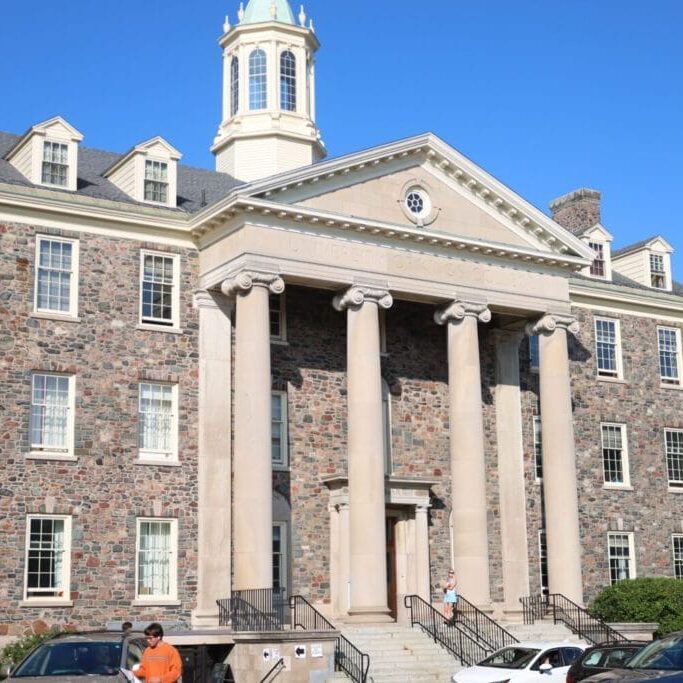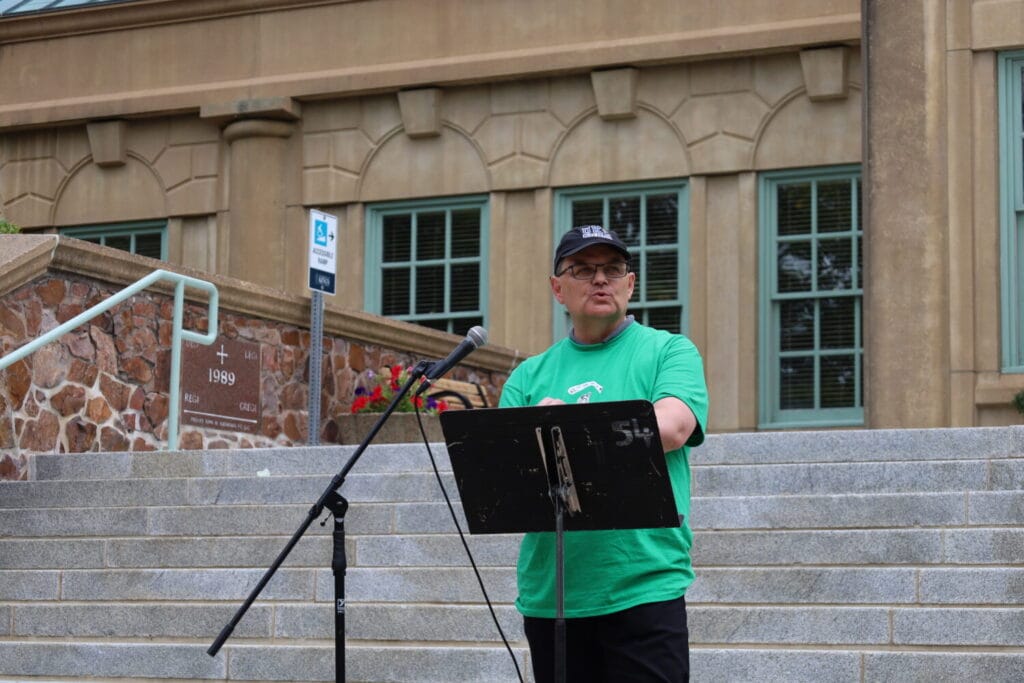
What did we miss? King’s becomes the first university in Halifax to divest from weapons manufacturers
The university had also been violating its policy since 2021 by not disclosing its investments
On June 24, the University of King’s College divested $320,938 of its investment portfolio from weapons manufacturers in response to an open letter from members of the university’s alumni.
The amount divested accounted for 0.75 per cent of the King’s investment portfolio, with the group “Alumni for Palestine” saying investing in weapons manufacturers violates the King’s Responsible Investment Policy.
King’s adopted the Responsible Investment Policy in 2021. The policy states King’s “will play an active role in ensuring our managers divest entirely of investments in companies and industries that clearly do not align with the ethical principles and values of the University, such as weapons manufacturing and tobacco/vaping producers.”
On June 12, Alumni for Palestine released an open letter to the King’s Administration. The letter said its signatories are committed to withholding all financial contributions until the university publicly discloses its investments, divests “from any companies playing active roles in the military occupation in Palestine and the ongoing genocide in Gaza” and releases a statement calling for a permanent ceasefire in Gaza.
William Lahey, President and Vice-Chancellor of King’s released a statement on July 11 in response to calls for divestment.
“As a result, to the best of our knowledge, King’s prior 0.75% exposure to the shares of companies in weapons manufacturing, has now been reduced to 0%,” Lahey’s statement said.
Sara MacCallum, president of the King’s Student Union and one of three student representatives on the King’s Board of Governors, believes the university is still not investing in accordance with its policy.
“It’s definitely a responsibility of the university to invest money, that it does choose to invest, smartly,” MacCallum said. “But it’s even more important that [the money] is invested responsibly in the sense of not supporting weapons manufacturing [and] other things that are already prohibited in its Responsible Investing Policy, and I would argue broader categories than the policy necessarily covers currently.”
King’s was also violating the investment policy by not disclosing its investments, even though the 2021 policy said it would do so. “We commit to publishing the list of the investment assets held within the endowment funds on the University’s website at least annually; providing visibility to all stakeholders,” the policy said.
Along with Lahey’s statement, King’s disclosed a complete list of its investments as of Dec. 31, 2023, which according to the statement is “the most recent period for which a full list is available.” The investment list predates the university’s divestment from weapons manufacturers.
Though Alumni for Palestine’s letter called for divestment in light of “a genocide and ethnic cleansing orchestrated by the state of Israel, amidst the ongoing Israeli occupation,” Lahey made clear that the university divesting and disclosing is not related to the conflict.

“Its publication has nothing to do with Israel or Palestine, it is because the college implemented a Responsible Investing Policy containing a publication commitment in 2021,” Lahey said in his statement. “Divestment from Israel is not in accordance with the Responsible Investment Policy, the broader investment policy of which it is a part, or the fiduciary responsibility of King’s to invest donated money to achieve optimal returns.”
MacCallum believes now is the time to reevaluate the university’s investments.
“It’s important to focus on the specific demands of divestment from weapons manufacturing and Israeli apartheid because of the genocide currently happening in Palestine,” she said. “Student activism in support of Palestine has not been respected in the same way that other forms of student activism generally are on King’s campus.”
While MacCallum believes King’s needs a more comprehensive approach to ethical investing, Lahey’s statement highlights the tension between the university’s commitment to maintaining its established policies and members of the university’s community calling for change.
Lahey’s statement said, “The demands generally have in multiple respects called for changes in university policies, leadership, administration and governance that are unsupported by any rationale that could be accepted as the basis for university decisions and would be contrary to the best interests of King’s. The university has not and will not act on the other demands that have been made to express support for Palestine.”
Lahey declined the Dalhousie Gazette’s request for comment, saying “I have nothing further to say on this matter in addition to what I wrote in my statement of July 11.”
While MacCallum appreciates the university disclosing and divesting, she said, “It’s also entirely clear to me that it is because students pointed out that it wasn’t being followed that King’s actually did the work to make sure their policy was being followed.”
Ellie Anderson is the External Vice-President of the KSU and the only student representative on the King’s Investment Committee.
“I would love if we didn’t invest in anything immoral,” Anderson said. “We’re not supposed to be invested in anything that is not representative of the values of the institution, but there are no written values of King’s as an institution.”
According to MacCallum, the fight for divestment is far from over.
“Divestment from fossil fuels is very important to a lot of students and that’s something we’re very interested in pushing for as well.”






